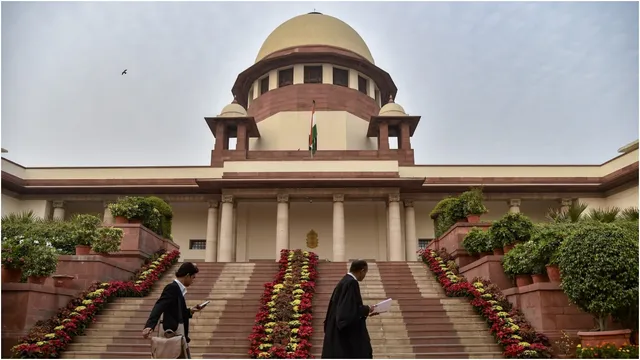- By Shubham Bajpai
- Thu, 20 Nov 2025 07:44 AM (IST)
- Source:JND
The Supreme Court on Thursday will pronounce its verdict on the presidential reference, under which President Droupadi Murmu has asked if a constitutional court can impose timelines for governors and the president to give assent to bills passed by state legislatures.
The judgment is slated to be given by a constitution bench of Chief Justice B R Gavai and justices Surya Kant, Vikram Nath, P S Narasimha, and A S Chandurkar. The verdict was reserved on September 11 after the Supreme Court heard the arguments for 10 days.
Presidential reference is the power that the President gets under Article 143(1) of the Constitution to seek legal advice from the Supreme Court. President Murmu invoked it in May after the top court, in its April 8 order, directed an imposition of timelines for the Governors and the President to decide on the bills.
The Supreme Court's judgment came in the case filed by the Tamil Nadu government against Governor RN Ravi's holding of the bill for the President's assent. The decision was considered as a direct confrontation to the discretion of the President while exercising its power.
In a five-page reference, President Murmu has posed 14 questions to the Supreme Court and sought to know its opinion on the powers of the Governor and the President under Articles 200 and 201 in dealing with bills passed by the state legislature.
During the hearing, Solicitor General Tushar Mehta, on behalf of the Centre, filed a written submission in the court arguing against setting a timeline. He had said that such timelines would give one organ of the government a chance to usurp powers that are not vested in it and thereby upset the delicate separation of powers.
Challenging the top court's directive to impose a timeline, Mehta said, "Even under its extraordinary powers vested in Article 142, the Supreme Court cannot amend the Constitution or defeat the intent of the Constitution makers, provided there are no such procedural mandates in the constitutional text".
(With PTI Inputs)

